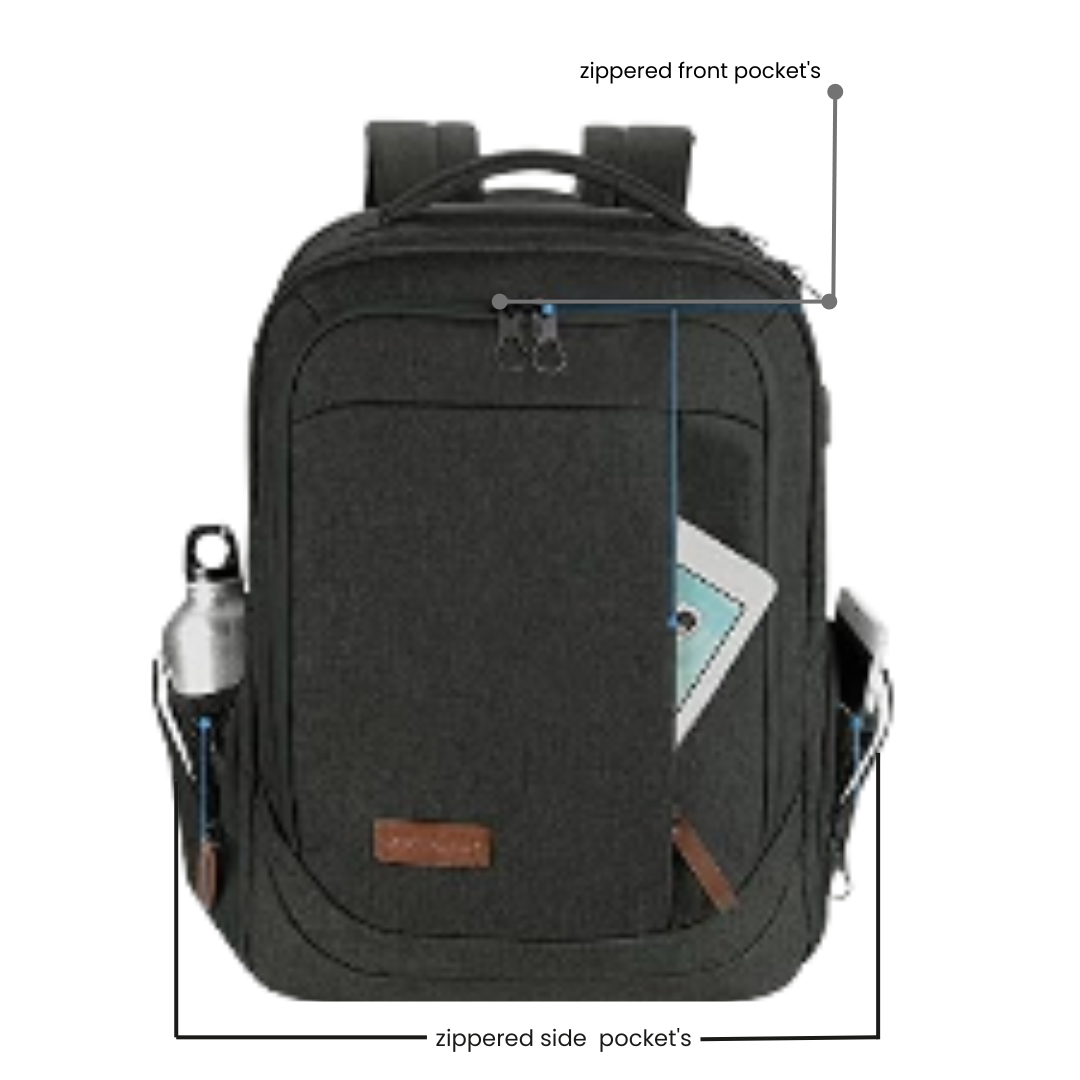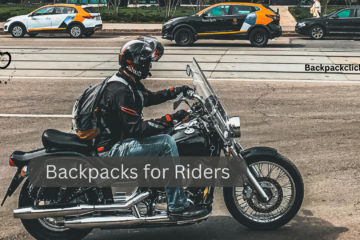Going on a day hike or for a camping trip during the weekends? In case you’re , and in need of a reliable and comfortable backpack. The right out backpack for men solves the problem as it is dependable, quite comfortable, durable and provides sufficient space to withstand a variety of terrains and climatic conditions. This manual will guide you through all the information you’ll require in regards to picking the ideal backpack for your needs.
- Types of Outdoor Backpacks for Men
That’s right: different activities will call for different types of the backpack. Here are popular forms:
1.1. Hiking backpacks
A set of outdoor activities aiming at summiting mountain tops or spending the weekend in wilderness areas requires a very space-efficient piece of gear designed solely for this purpose and capable of holding all the essentials. Thankfully, proper hiking packs are lightweight and designed to store well.
1.2. Camping backpacks
If hiking lies in the forefront of your weekend plans, then take notice of camping packs designed for this exact purpose. These packs come with camping compartments along with exterior loops to attach loads of camping equipment.
1.3. Travel backpacks
Travel backpacks are stronger and more spacious, as they feature many outdoor elements and should at the same time be TSA compliant for people who love outdoor adventures but travel abroad a lot.
1.4 Tactical and Military Backpacks
Due to their solid construction and practicality, tactical backpacks are perfect for tough and rugged outdoor activities. These packs allow decent amount of organization and maintain versatility as well.
- Important Characteristics of a Good Outdoor Backpack.
People who utilize backpacks for outdoor activities consistently seek for and appreciate various features of the backpack that are specifically intended to augment the outdoor experience.
2.1 Durability
Backpacks made of nylon or polyester, for instance, are a nice option as they can endure the test of time and do not get ruined within a short duration.
2.2 Weight and Size
This is obvious – it is the size of the bag that does not ideal for your proportions. A truly large and heavy bag does not help your long treks in any way and borders on the uncomfortable.
2.3 Comfort and Fit
To make your adventures more fun, always select a bag with padded shoulder straps and a mesh back panel to reduce discomfort.
2.4 Water Resistance
Outdoors, the weather tends to be unpredictable. This is why it is best to use a backpack that is water-resistant or waterproof to prevent damage to your equipment.
- Picking the Appropriate Size Backpack
A proper backpack size actually depends on: how long do you intend to use it and how much gear do you plan to carry.
3.1 Daypacks
For short hikes, day packs are the best bet with about 20-35 liters because these have enough space for the basics and do not weigh too much.
3.2 Multi-Day Backpacks
If you plan to spend more than one day outdoors then a backpack with a capacity of 35-50 liters would be the best fit, it provides a large amount of space without being too bulky.
3.3 Figures Useful in Estimate Extended Trip Backpacks
In the event that you’re going on a long backpacking adventure, it is recommend that a 50-70 liters backpack be used, because it allows extra space to be used for extra gear, food and more clothing.
- The Hybridization of Backpacks
Urban usage or exposure to harsh elements similar to that of outdoor activities makes it fitting that nylon and polyester material backpacks are common as they are durable and lightweight. Moreover, more robust type of backpacks are those that have reinforced stitching that could handle heavy weight.
- Organizational Features in Backpacks
5.1 Pocket and compartments
A pocket or compartment in the backpack would make it convenient for a person on move as he/she would not have to rummage all his/her belongings to retrieve the needed material.
5.2 Hydration bladders
Furthermore, a number of outdoor packs may have sleeves sewn into them that fit a hydration bladder so there is easy access and one does not have to worry about water while on the go.
5.3 External and internal features
Packs with loops or straps make it easy to attach other types of gear such as trekking poles, sleeping bags or even tents to backpacks.
- Comfort and Fit
6.1 Strap Types
In most instances, outdoor backpacks come with adjustable straps located on the shoulders, chest and waist, which provides the user with a comfortable layout.
6.2 Construction Type
High quality padding is found on the shoulder straps or the back panel where extra cushion is well appreciated, and the support and overall firmness makes it possible for the weight to be spread out evenly even with a heavy backpack or pack.
6.3 Mesh padding
When going on a soft trip, bring along a cooling back pack that has mesh padding as this allows a person’s back to breathe eliminating excessive amounts of sweat during long walks.
- Safety Features
7.1 Reflective Strips
Reflective features are a great asset in the dark especially during the early hours or in the evening before nightfall.
7.2 Emergency Whistle
Chest whistles are a life-saving device found on most backpacks and are used for emergency signaling.
7.3 Built-In Rain Cover
Rain covers are ideal for protecting both sustainable rain packs and the contents and are ideal for unstable conditions.
- Advice on How to Pack an Outdoor Backpack
The high point of gravity should be the heavier stuff which is common sense otherwise the centre of the backpack will be off balance. Use the bottom of the backpack for thick items and place those items which are not required often and are in the top sections or side pockets.
- Best Brands for Men’s Outdoor Backpacks
Quality and trust worthy brands such as Osprey, North face, Deuter have a reputation for durable and efficient outdoor backpacks. These brands have been known to have a variety of outdoor relevant product which ranges from backpacks for hiking and for climbers as well.
- Frequently Asked Questions about Maintaining and Cleaning a Backpack
In order to ensure that the backpack lasts long and is kept in good condition, it should be washed every time after a trip. Simply wipe with a cloth that is moist, wipe and clean the areas with dirt on them and once in a while, hand wash with soap. Do not use washing machines as they may harm the backpacks.
Conclusion
When it comes to choosing the best outdoor backpack for men, several factors need to be put into consideration such as size, comfort, durability, and organization. The right backpack can make your outdoor trips enjoyable and less stressful. Ensure you do not rush the process of comparing the alternatives and that you choose a pack that will serve you and improve your experience outdoors.
FAQs
- What size backpack should Men use for a day hike?
Apart from a day pack in between 20 and 35 Liters, should for the most part be able to contain things like snacking, water and a jacket for warmth.
- How do you protect your backpack in the rain?
There are many bags that have rain cover inside as a feature while others might come with one for free or require for it to be purchased separately.
- What fabric makes ideal outdoor backpacks?
Nylon and polyester are strong materials that are also light-weight and will suffice in outdoor conditions.
- Knapsack – How do make bigger ones comfortable?
Always pick one, which has padded straps, adjustable harness, and a back with vents while trying to make it comfortable on long hikes.
- Can a hydration pack be considered an essential accessory of an outdoor backpack?
Yes a hydration pack is practical as it allows for the owner to stay hydrated; alternatively, a water bottle can be carried along if a hydration pack is not an option.

